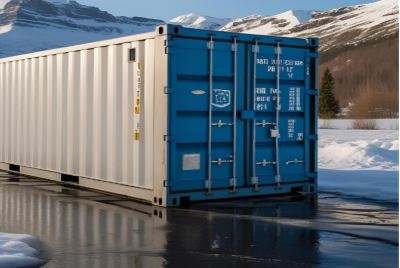Small business owners in the food, floral, pharmaceutical, and catering sectors quickly learn that maintaining freshness and safety is no minor task. Whether running a neighbourhood bakery, a pop-up fish stall, or a summer ice-cream van, reliable refrigeration quickly shifts from a helpful extra to an absolute must.
Yet buying a new fridge trailer outright usually demands a cash outlay that many early-stage firms simply cannot summon. Enter the hire option: a line of insulated steel boxes that can be delivered, plugged in, and returned at the season’s end.
Choosing rented cold storage gives entrepreneurs the performance of a premium unit without the long lease or sticker shock. The arrangement is quick, adaptable, and energy-three features that a growing firm typically judges essential.
This article examines how rental containers can unlock extra capacity, cut spoilage, and in turn add measurable value to the balance sheet.
1. Cost-Effective Cold Storage Without Breaking the Bank
Let’s face it purchasing even a one-trip refrigerated container represents a six-figure start for almost any shop. Because many operators already juggle rent, payroll, and ingredients, locking cash in metal walls rarely makes sense. With a hire plan, businesses pay by the day or week billing scales with demand, and the fiscal burden stays lean.
Rather than committing thousands of pounds to outright purchase, a business can instead rent a storage container for a single day, several weeks, or whatever duration best fits its workflow. This on-demand access frees up capital that can be directed toward product quality, marketing initiatives, or payroll, rather than locked into depreciating equipment.
Rental also alleviates the administrative burden of upkeep. Leading providers such as Conrail bundle routine servicing and technical support into the fee, sparing users from sudden repair bills and allowing staff to focus on core operations.
2. Ideal for Seasonal or Temporary Business Needs
Many small firms experience sharp, predictable peaks in demand over the calendar year. Caterers run double crews during summer weddings and holiday events. Florists expand inventory a week before Valentine’s Day or Mother’s Day. A dairy stall or farmers’ market vendor may need weekend space for surplus stock before fairs and festivals.
Refrigerated containers for hire deliver that short-term adaptability without forcing a long-term commitment or the cost of permanent infrastructure. Businesses can add units for high season and return them as order volumes decline. The result is a truly scalable solution that expands and contracts in sync with sales, sidestepping the financial drain of unused, idled assets.
Such flexibility proves especially useful for temporary enterprises like festivals, pop-up markets, and event-catering operations, where portable refrigeration is needed only for the life of the occasion.
3. Space-Saving and Versatile for Any Location
A second advantage is that refrigerated containers for sale bypass indoor installation headaches. Because they are designed to resist rain, sun, and wind, the units can be unloaded on driveways, parking lots, jagged gravel, or even grassy backyards.
That mobility relieves small kitchens, cramped shops, and remote facilities from the burden of permanent cooling upgrades that chew up square footage and renovation pounds. Instead, operators can rent a unit, roll it into the most accessible spot, and start working.
Suppliers stock sizes ranging from narrow 10-foot cubes for light loads to full 40-foot trailers able to chill pallets, so customers can select the footprint and capacity they need today. When longer commitments arise, businesses also have the option to purchase a container outright.
4. Maintain Product Quality and Compliance
In a world where spoilage losses and regulatory fines travel together, hiring a refrigerated box offers a reliable safety net. Whether holding seafood, dairy, pharmaceuticals, or vaccines, the steady thermostat protects quality while satisfying food-safety and health codes.
Most rental refrigerated containers feature reliable digital thermostats that let users set and hold temperatures anywhere from -40°C to +10°C. This level of control keeps perishable stock within safe ranges, markedly cutting spoilage, waste, and follow-up complaints.
A second, overlooked advantage is regulatory peace of mind. Documented temperature logs from the unit provide solid proof that storage conditions passed health inspections, shielding the company from legal disputes or reputational fallout.
5. Quick Setup with Zero Downtime
For many small companies, stopping work to install new equipment simply isn’t an option. Refrigerated container hires solve that problem because they plug in and chill. Delivery teams typically arrive, place the unit, hook up power, and leave it running within a day or two, with almost no on-site effort needed.
Prompt access to extra cold storage then protects against surprises, a spike in orders, a failed cooler, or even a temporary power cut. Keeping operations seamless guarantees that products stay frozen, employees remain busy, and customers walk away satisfied.
Conclusion: Smart, Scalable, and Profitable
In a market that rewards agility, renting refrigerated containers delivers cold-chain reliability without heavy upfront costs. Businesses gain flexible, code-compliant space for peak seasons, and the investment quickly pays for itself through reduced losses and loyal patrons.
Whether you need to rent a refrigerated container for a short-term project or are considering the purchase of a new unit for long-term use, partnering with a proven supplier such as Conrail provides dependable equipment, knowledgeable guidance, and contract options that adapt to your operational requirements.
FAQs
1. What is the typical cost to hire a refrigerated container?
Costs vary based on size, duration, and location, but typically range from £30 to £100 per day. Weekly and monthly rates may offer better value.
-
Can refrigerated containers be used outdoors?
Yes, they’re fully weatherproof and can be used in outdoor environments without additional shelter.
-
What temperature range do refrigerated containers support?
Most units can maintain temperatures between -40°C and +10°C, suitable for frozen and chilled storage.
-
Is hiring better than buying for a small business?
Hiring is ideal for short-term or seasonal needs. If you require long-term, permanent storage, buying might be more cost-effective.
-
Do I need any special equipment to operate a refrigerated container?
No special tools needed. Most containers run on standard electrical power and are easy to operate with digital temperature controls.


